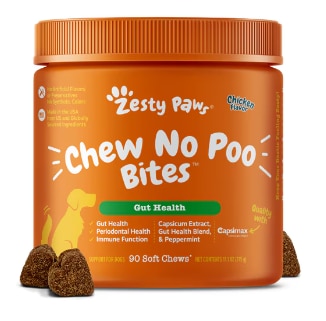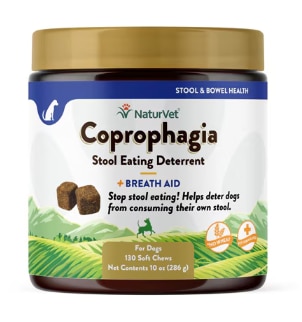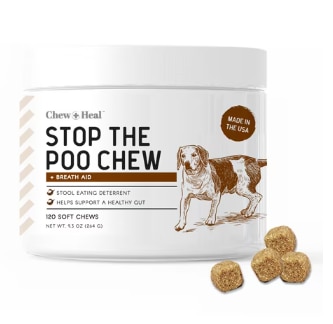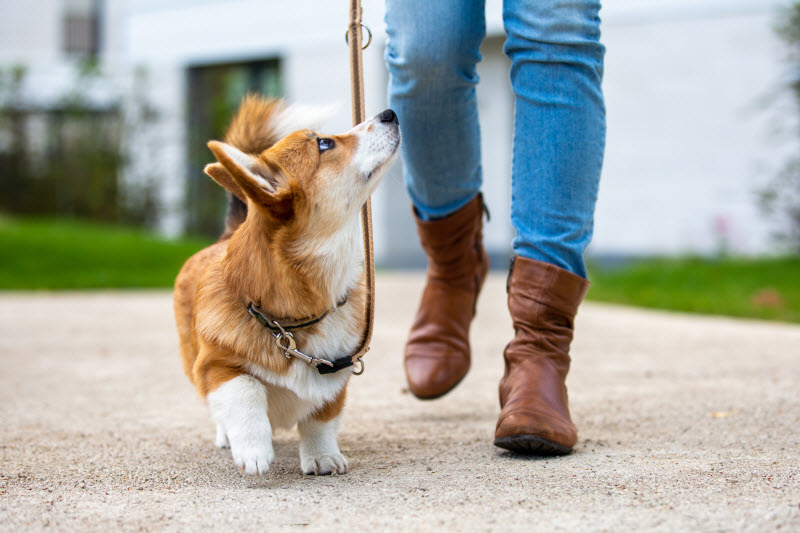We all love our dogs, but Fido may have one habit that is less than endearing.
Coprophagia is the scientific name for a dog’s predilection to eat feces. This bad behavior disgusts many dog owners, but it is unfortunately common.
About 1 in 4 dogs — 24% — are guilty of coprophagia at least once, and 16% have been caught in the act at least five times, according to research out of the University of California.
Why do dogs eat poop?
Dogs engage in coprophagia for both behavioral and physiological reasons. Dogs were scavengers throughout their evolution, and eating feces may have been one habit that helped them avoid starvation, according to the American Kennel Club.
In addition, mother dogs typically clean up their puppies’ waste by eating it during the first few weeks of their offsprings’ lives.
“Sometimes it’s simply behavioral — puppies may learn it from their mother or other dogs, and it becomes a habit,” says Emma Fulton, a Liverpool, England-based veterinarian.
Curiosity or boredom also can play a role, especially in dogs that aren’t getting enough stimulation.
“Some dogs just crave attention, and owners unknowingly reinforce the behavior by reacting to it,” Fulton says.
In other cases, underlying health issues — including malabsorption or enzyme deficiencies — cause dogs to turn to coprophagia to compensate for what their body is lacking, Fulton says. Cushing’s disease or diabetes also can play a role in why dogs engage in this behavior.
“It’s a frustrating thing to deal with, but it’s rarely about the dog being ‘naughty,” Fulton says.
A natural — but unpleasant — habit
Some dogs eat their own feces, while others eat the feces of any dog. Dogs also may eat the feces of other animals, such as horses.
The American Kennel Club notes that most dogs are not attracted to soft stools or diarrhea. On the other hand, some may find it hard to resist harder stools, particularly if they are frozen.
The University of California study found that:
- This behavior is more likely in households of two or more dogs
- Most dogs — 85% — do not eat their own feces
- Female dogs are more likely than males to engage in coprophagia
- The overwhelming majority of dogs — 92% — will only eat feces that are a day or two old.
Dogs are not alone in this unsavory behavior. Some animals eat feces as a matter of course because it helps them to get the nutrients they need.
While dogs typically do not get nutrition in this way, the bottom line is that coprophagia is simply acceptable animal behavior, even if humans disagree.
But natural or not, many pet owners would prefer to stop this habit in its tracks. Fortunately, there are ways to do so.
Should you try to stop coprophagia?
Before discussing ways to end coprophagia, it’s worth asking whether you should even bother to try.
There are some good reasons to try to break this habit. While coprophagia is often harmless, that is not always the case.
“While it’s generally not life-threatening, coprophagia can pose risks,” Fulton says.
Fulton says a dog that eats feces might pick up parasites or harmful bacteria like E. coli, which can then be passed on to humans through licking.
“I’ve also warned clients about the potential danger when dogs eat the feces of animals who have ingested medications or other substances, which can be toxic,” Fulton says.
In addition, coprophagia might be an indicator of another health problem. An increase in appetite can cause a dog to eat its feces. Factors that might create such a change in appetite include:
- Infestation with parasites
- A side effect of drugs such as steroids
- Malabsorption syndromes
- Diabetes
- Cushing’s disease
- Thyroid disease
Dogs that lack access to proper nutrients and calories also might engage in coprophagia.
Ending your dog’s coprophagia habit
Fulton says ending your dog’s coprophagia habit is not always easy.
“There’s no magic cure, but I’ve found that combining a few approaches works best,” she says.
Cleaning up feces right away is a simple but often overlooked step, she says. She also recommends dietary tweaks to make sure the dog gets all the nutrients it needs, sometimes with the help of digestive enzyme supplements.
“Training is essential, too,” Fulton says. “Teaching a dog to ‘leave it’ and then rewarding them for walking away is one approach I’ve seen success with.”
Fulton says one of her clients curbed coprophagia by increasing the dog’s physical activity and mental stimulation, “which helped keep the dog busy and less interested in engaging with feces,” she says.
In addition, Fulton says there are stool-deterrent products that can make feces less appealing to dogs.
Supplements are available that will make your dog’s feces less appealing. These supplements often contain ingredients such as garlic, chamomile or derivatives of pepper plants.
Some pet owners also spray feces with a formula that makes the waste taste bitter.
“I usually tell clients to try these products in combination with training and proper management, because relying on the deterrents alone isn’t enough,” she says.
For dogs that are particularly persistent, it may be necessary to muzzle them during walks as a temporary solution to break the habit, Fulton says.
Featured Products



The post Breaking the Cycle: How to Curb Your Dog’s Poop-Eating Behavior first appeared on The Upside by Vitacost.com.


